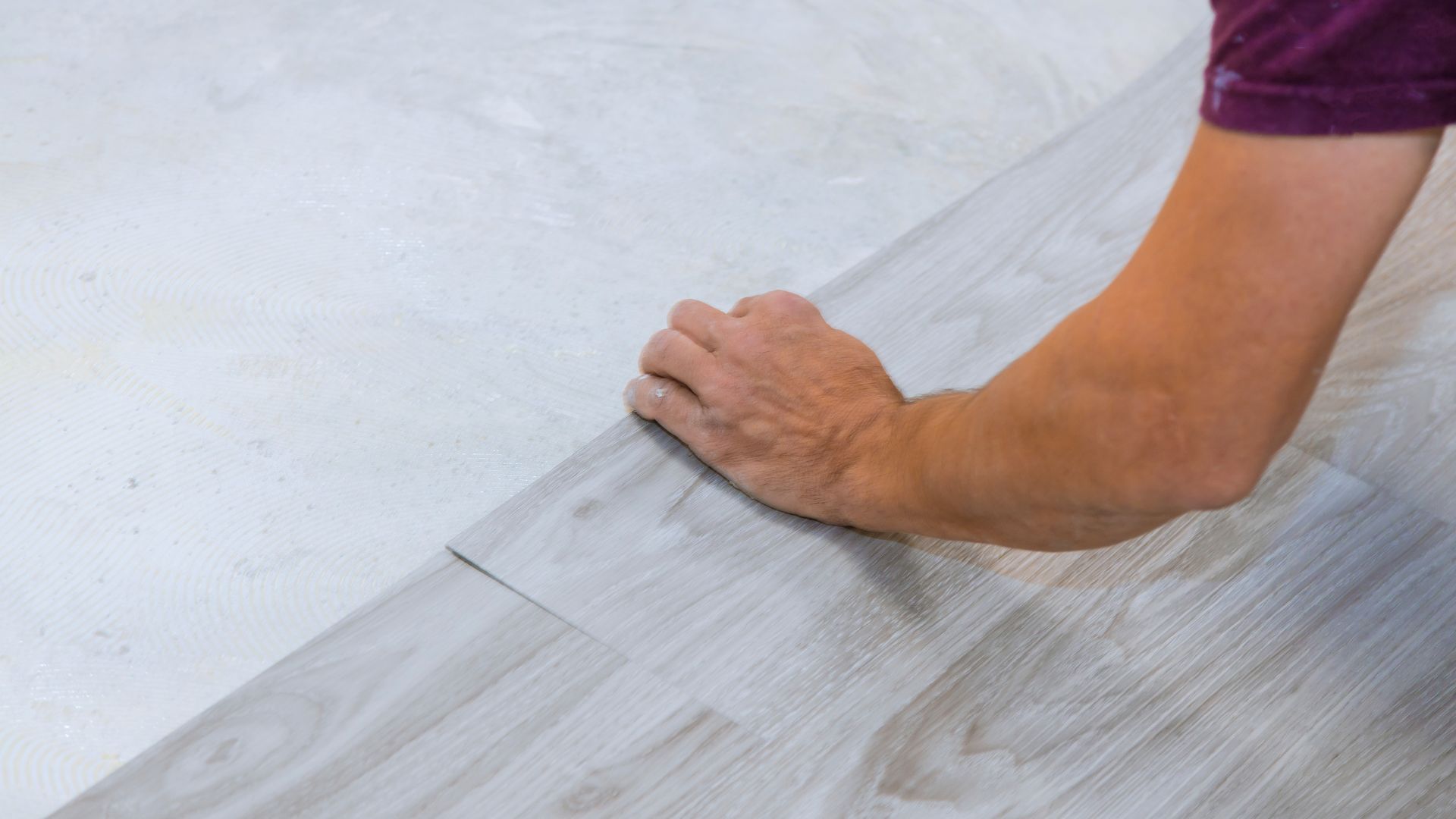Lifestyle
Hardwood Staircase Flooring: Pros, Cons, and Benefits

In the world of home design and aesthetics, stairs play an important but often overlooked role. Unfortunately, many homeowners unknowingly underestimate the untapped potential of stairs as essential design elements. In addition to their practical purpose, stairs can be turned into elements that add elegance and style to a home. Among the various materials used for staircases, hardwood is consistently favoured and versatile. It not only emphasizes visual appeal but also provides practical benefits. In this article, we will take an in-depth look at hardwood flooring on stairs, exploring its many benefits, unique features, and essential factors that deserve close attention.
The Allure of Hardwood: 10 Resounding Reasons to Consider
Before we delve into the particularities that make hardwood a quintessential choice for staircases, it’s significant to preface that every material brings its own set of attributes to the table. However, hardwood stands out as an amalgamation of versatility, enduring grace, and pragmatic efficiency. In the following sections, we dissect the manifold reasons that could make hardwood the pièce de résistance of your home, synthesizing elegance and utility in a singular, memorable way.
1. The Intersection of Aesthetics and Practicality
The material you choose for your staircase isn’t just a matter of function; it’s a declaration of style. Hardwood, with its intrinsic elegance and an array of utilitarian benefits, delivers a package that’s hard to ignore or beat.
2. Refinishing: A Second Life
Think about your staircase as a long-term investment. Over time, the rigours of daily use will manifest in scuffs, dents, and general wear. Hardwood offers an elegant solution—refinishing. This process restores your staircase to its former glory, allowing for a sustainable approach to interior decor.
3. The Majesty of Grain Patterns
Hardwood is not a monolith. The unique grain patterns that distinguish one type of wood from another can add significant nuance to your staircase. They allow for a deeply customized aesthetic that can either complement your existing decor or serve as a contrast to create an entirely new design language within your home.
4. An Investment in Timelessness and Home Value
Hardwood’s timeless appeal is a well-established fact. What’s less discussed is how this quality can translate into a tangible financial benefit. A hardwood staircase can significantly elevate the overall value of your property, making it a wise investment for the future.
5. Maintenance Ease
In the bustle of modern life, who has the time for laborious maintenance routines? Hardwood staircases, with their minimal upkeep requirements, fit comfortably into busy lifestyles. A simple sweep and an occasional mop will keep them shining for yea harbour
6. The Health Dividend
A carpeted staircase might look inviting, but it can be a hotbed for allergens and pathogens. In contrast, the smooth surface of hardwood is less likely to harbour these unwelcome guests, making it a more health-conscious choice, particularly for households with children or those susceptible to allergies.
7. Versatility in Design and Safety
Adding a runner or tread rug can instantly mitigate concerns about noise or slippage on a hardwood staircase. This dual-function approach means that you don’t have to sacrifice aesthetics for safety.
8. Eco-Friendly Credentials
In an age increasingly defined by environmental consciousness, the natural origins of hardwood make it an environmentally friendly choice. While it’s essential to source responsibly to ensure sustainability, the inherent eco-friendly nature of wood offers a win-win situation.
9. Durability Par Excellence
A well-crafted hardwood staircase can withstand years of heavy traffic without losing its aesthetic or functional edge. Its remarkable durability promises not just longevity, but also sustained quality.
10. Weight and Structural Integrity
While often robust and substantial, specific hardwoods like Douglas fir and pine strike an essential balance between strength and weight, making them ideal for complex staircase structures.
Pros and Cons of Hardwood flooring
No decision, especially one as enduring as the choice of material for your staircase, should be made lightly. While hardwood offers a plethora of advantages, it’s not devoid of its own set of quirks and considerations. Whether you’re enamoured by the visual feast that is a hardwood staircase or you’re still straddling the fence of decision-making, a balanced understanding of both its virtues and limitations can illuminate your path. So, let’s unfurl the tapestry of pros and cons to help you make a well-considered choice.
Pros:
- Easy Maintenance
One of hardwood’s standout features is its minimal maintenance requirement. Unlike carpeting or other soft flooring materials that may require periodic deep cleaning, hardwood only needs occasional dusting or mopping. This ease of maintenance saves both time and long-term cleaning costs.
- Aesthetic Flexibility
Hardwood is like a chameleon in the design world; it can adapt to almost any setting or aesthetic preference. Whether your home leans more towards a rustic charm or modern minimalism, hardwood can be finished and stained to match the mood.
- Health Benefits
For households with allergy concerns, hardwood is a godsend. Its solid, non-porous surface is hostile to dust mites, allergens, and other pathogens that could cause health problems. It’s much easier to clean and sanitize, ensuring a healthier living environment.
- Long-Term Value Addition
A hardwood staircase is not just a design choice; it’s an investment. Homes with hardwood features often have higher resale values. Over time, as other materials age and deteriorate, hardwood retains its timeless allure, thereby adding to the long-term value of your property.
- Eco-Friendly
Provided that you’re sourcing from responsible vendors, hardwood is a renewable resource. Its production has a lower carbon footprint compared to other flooring materials like tiles or carpet. Plus, old hardwood can typically be recycled or repurposed, minimizing waste.
- Durable
It’s not just about how long something lasts, but also about how well it lasts. Hardwood is inherently durable, capable of withstanding heavy foot traffic and the wear and tear of daily life without losing its aesthetic appeal.
- Wide Range of Stylistic Options
Hardwood comes in various species, grains, and finishes, allowing for an enormous range of stylistic options. From the rich, dark hues of walnut to the lighter tones of birch or oak, you can customize your staircase to match your specific aesthetic tastes and needs.
Cons:
- May Require Safety Adaptations
Hardwood is a beautiful but slippery material, especially when wet. If you have small children or elderly family members, or if you’re just generally concerned about safety, you may need to invest in additional safety features like anti-slip treads or stair runners.
- Initial Cost Can Be High
The upfront cost of installing a hardwood staircase can be higher than other material options like carpet or laminate. This initial expenditure, however, should be weighed against the long-term benefits, both aesthetic and financial, that hardwood offers.
- Specific Household Conditions May Necessitate Extra Considerations
While hardwood is mostly durable, it can be sensitive to fluctuations in temperature and humidity. Homes in particularly dry or humid climates may require humidifiers or dehumidifiers to maintain the wood’s integrity over the long term. Also, if you have pets with claws, be prepared for some inevitable scratching.
Conclusion
Choosing a staircase material is not a decision to be taken lightly; it’s an integral element that functions both practically and aesthetically within your home. Hardwood offers an attractive package of aesthetic versatility, long-term value, minimal maintenance, and health benefits. Consult your local specialists to ensure your hardwood staircase not only captures your aesthetic vision but also endures over time.
Lifestyle
Powerful Corporate Gifting Strategies to Build and Strengthen Business Partnerships

If you want to build and strengthen business partnerships with your clients and top investors, there are a few key steps you must take. One essential strategy is corporate gifting. This simple act goes beyond building a partnership. It will also increase your customer retention rate and promote your business even beyond the shore of your country.
But before you consider gifting any item, there are some strategies to put in place. This will ensure your gift makes a lasting impression and resonates well with your clients. Below are powerful corporate gifting strategies to build and strengthen business partnerships with your clients and top investors.
Choose a Personalized Item
Rather than choosing an ordinary gift for your clients and investors, opt for a personalized item. Customised corporate gifts such as T-shirts, coffee mugs, and bags create a stronger emotional connection than generic gifts. They also leave a more lasting impression than most other gift types.
Imagine how investors and your clients will feel when you beautifully inscribe their image or favorite quotes on a T-shirt. Of course, they will feel valued, appreciated, and ready to invest more in your business.
Consider Their Culture and Background
As an entrepreneur, it’s essential to be culturally competent and sensitive. Your gifts should resonate with your clients’ and investors’ cultural backgrounds. Otherwise, they may be quickly discarded or overlooked. If your investors and audience are predominantly of Black heritage, consider giving them a custom T-shirt featuring a map of Africa or inspirational quotes from iconic Black leaders.
Their religious beliefs are also important. Specific religions may find some images or symbols inappropriate. For instance, if you’re giving a gift to a Muslim investor, avoid designs that include images like pigs, as they are considered offensive in Islamic culture.
Consider a Functional Gift
You should also consider the gift’s functionality. A gift that can be used every day will be more valuable than an impractical one. Even if the gift is expensive but doesn’t have any functional purpose, it won’t serve the purpose it was intended for.
Instead of purely sentimental keepsakes or abstract gifts, consider practical items like pens, notebooks, backpacks, coffee mugs, umbrellas, or water bottles. Just make sure the gift is well-designed and features your brand logo and identity. This not only increases brand visibility but also helps strengthen the connection between you and your investors.
Tie it to a story
Tie your gifts to a story to make them more memorable and emotionally meaningful. For example, if during your business’s early days, your employees always worked tirelessly day and night, you could opt for a custom hourglass. Clients and investors who receive such a gift will appreciate your business’s journey of patience and perseverance.
Offer Quality Gifts
Gifts given to investors or clients who have significantly contributed to your business growth should reflect their value. They shouldn’t be cheap or low-grade items. The gift doesn’t have to be trendy or widely popular, but it should come from a reputable and high-end brand. This will give your gift more credibility. Besides, the recipients will feel comfortable to use the gift among their colleagues.
-

 Tech4 years ago
Tech4 years agoEffuel Reviews (2021) – Effuel ECO OBD2 Saves Fuel, and Reduce Gas Cost? Effuel Customer Reviews
-

 Tech6 years ago
Tech6 years agoBosch Power Tools India Launches ‘Cordless Matlab Bosch’ Campaign to Demonstrate the Power of Cordless
-

 Lifestyle6 years ago
Lifestyle6 years agoCatholic Cases App brings Church’s Moral Teachings to Androids and iPhones
-

 Lifestyle4 years ago
Lifestyle4 years agoEast Side Hype x Billionaire Boys Club. Hottest New Streetwear Releases in Utah.
-

 Tech6 years ago
Tech6 years agoCloud Buyers & Investors to Profit in the Future
-

 Lifestyle5 years ago
Lifestyle5 years agoThe Midas of Cosmetic Dermatology: Dr. Simon Ourian
-

 Health6 years ago
Health6 years agoCBDistillery Review: Is it a scam?
-

 Entertainment6 years ago
Entertainment6 years agoAvengers Endgame now Available on 123Movies for Download & Streaming for Free
